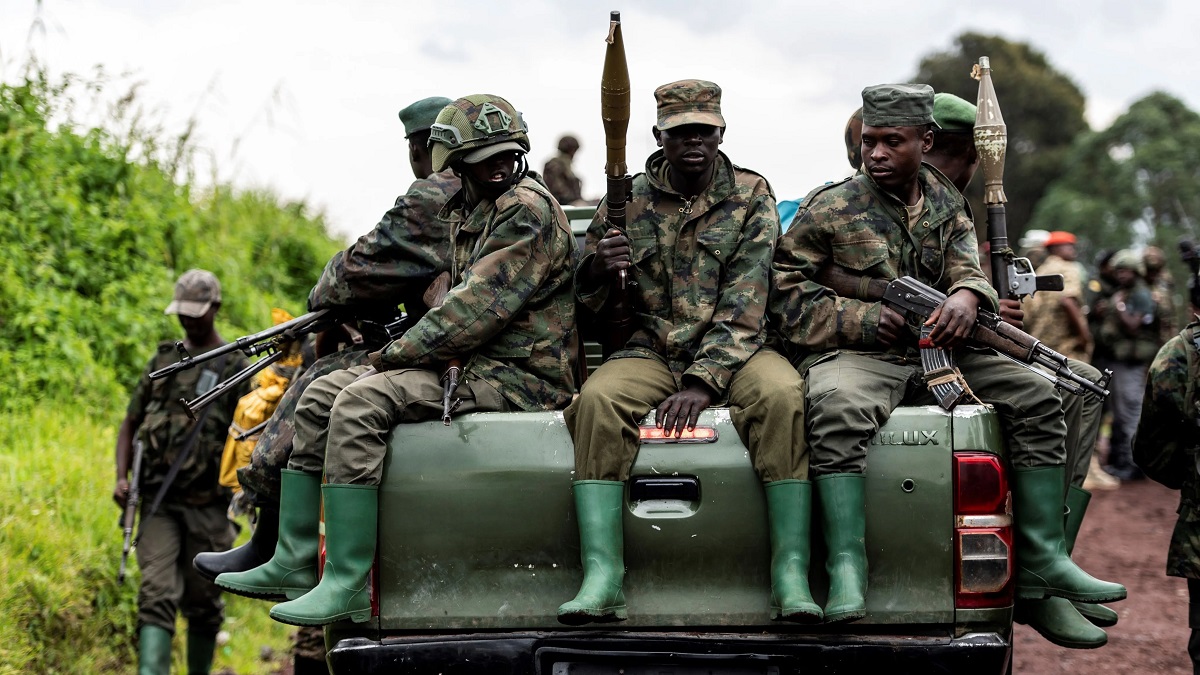M23 rebels take ‘instructions’ from Kigali as Kampala ‘doubles’ troops in DRC — UN
- A week to Goma takeover by M23 rebels, Rwandan officials informed UN experts that President Kagame had decided to imminently take control of the city and Bukavu as well.
- UN says there has been “rapid military build-up” by the Uganda People’s Defence Forces (UPDF) in North Kivu and Ituri provinces.
- Both Uganda and Rwanda have emerged as significant exporters of critical minerals including coltan yet they do not have significant deposits on record.
A leaked report from the United Nations has fingered authorities in Rwanda and Uganda, alleging that the M23 rebels in the Democratic Republic of Congo (DRC) receive ‘instructions’ from Kigali, even as Kampala ‘doubles’ its army personnel in the war-ton country.
According to Al Jazeera, the note from the United Nations exposes the continued violation of the territorial integrity and the law by all parties to the conflict gripping eastern DRC. In particular, it accuses authorities in Kigali and Kampala for worsening the continued state of lawlessness in the mineral rich country.
For Uganda, UN notes that there has been “rapid military build-up” by the Uganda People’s Defence Forces (UPDF) in North Kivu and Ituri provinces even as the M23 rebels claimed advancement and control over vast areas of land in eastern DRC.
Uganda ‘doubles’ troops in DRC: UN
“The DRC government confirmed that the new UPDF deployment was executed without its prior approval, and that UPDF was undertaking unilateral initiatives outside the framework of joint operations with the [Congolese army],” the UN explains. Overall, troops significantly increased in 2025, “effectively doubling Uganda’s footprint in the country”, it added.
The latest expose by the UN, which is set to be published at a later date, accuses authorities in Rwanda for offering support that resulted in speedy advance of the M23 rebels across eastern DRC. The leaked report notes that Rwanda is offering “critical support” to the M23 rebels, a group of fighters who receive “instructions” from President Paul Kagame’s officials and intelligence network.
“One week prior to the [M23] Goma attack, Rwandan officials confidentially informed the Group [of experts] that President Paul Kagame had decided to imminently take control of Goma and Bukavu,” the leaked UN assessment report states in part.
Pressed for comments earlier in July when snippets of the UN report appeared in global media outlets, President Kagame stated, “These reports were written long ago,” adding, “They come here just to confirm a narrative they already had.”
Rwanda’s “de facto direction and effective control” over M23 rebels
According to the UN, President Kagame’s army personnel ’s “de facto direction and effective control” over the movements and operations of the M23 rebels “render Rwanda liable for the actions” that the group has committed. The UN notes that on account of this and other issues, Kigali’s conduct during the roiling crisis meets the standard for international sanctions effected by global powers.
The damning report draws the conclusion that “the final objective of Kigali was to control the territory of the DRC and its natural resources,” a position that is already collaborated by findings from other watchdog institutions.
“Once in Rwanda, the looted minerals were mixed with local production, effectively laundering them into the downstream supply chain under the guise of Rwandan origin,” the UN report explains in part.
Both Uganda and Rwanda have emerged as significant exporters of critical minerals including coltan yet they do not have reserves of proven ability on record. UN revealed that some consignments of critical minerals that were smuggled into Rwanda were bought by Boss Mining Solutions Inc, a company represented by Eddy Habimana, who has in the past been caught in the web of trafficking minerals from DRC.
This is not the first time that Rwanda has been accused by the UN of direct involvement in the DRC crisis. Previously, UN experts reported that there were roughly 3,000-4,000 Rwandan troops on Congo soil fighting hand in hand with the M23 rebel group.
According to the Centre for Strategic International Studies, Rwanda’s long-standing support for armed groups in the region—including the Rassemblement congolais pour la démocratie (RCD), Congrès national pour la défense du peuple (CNDP), and now the M23—has over the years contributed to the rise of armed groups in the region.
Additionally, in 2023 a report by a UN Group of Experts accused Rwanda of offering direct military support including the deployment of troops and arms to the M23 rebels. When faced with calls for accountability, however, Kigali denies any involvement.
With accusations and counter accusations mounting, the border region and areas between Rwanda and the DRC have remained a flashpoint, worsening tensions with and within Kinyarwanda-speaking people in the DRC.
DRC-Rwanda peace agreement
On Friday, June 27, in Washington, D.C., the foreign ministers of the DRC and Rwanda signed the Critical Minerals for Security and Peace Deal, a U.S.–brokered accord that seeks to end the war in the critical minerals rich region. The agreement is the outcome of several months of diplomacy led by President Donald Trump’s special adviser for Africa, Massad Boulos.
While the agreement calls for immediate cessation of hostilities between parties in the area, it also outlines a framework for cooperation on the exploration and mining of critical minerals in the DRC as Washington steps in to ruffle China’s presence in the billion-dollar segment.
The M23 rebels, who have not publicly endorsed the agreement, have been waging a fierce battle against President Félix Tshisekedi’s administration, gaining control over the cities of Goma and Bukavu and a vast area across eastern DRC.
Read also: M23 rebels: We will march all the way to Kinshasa
Share this content:





Post Comment